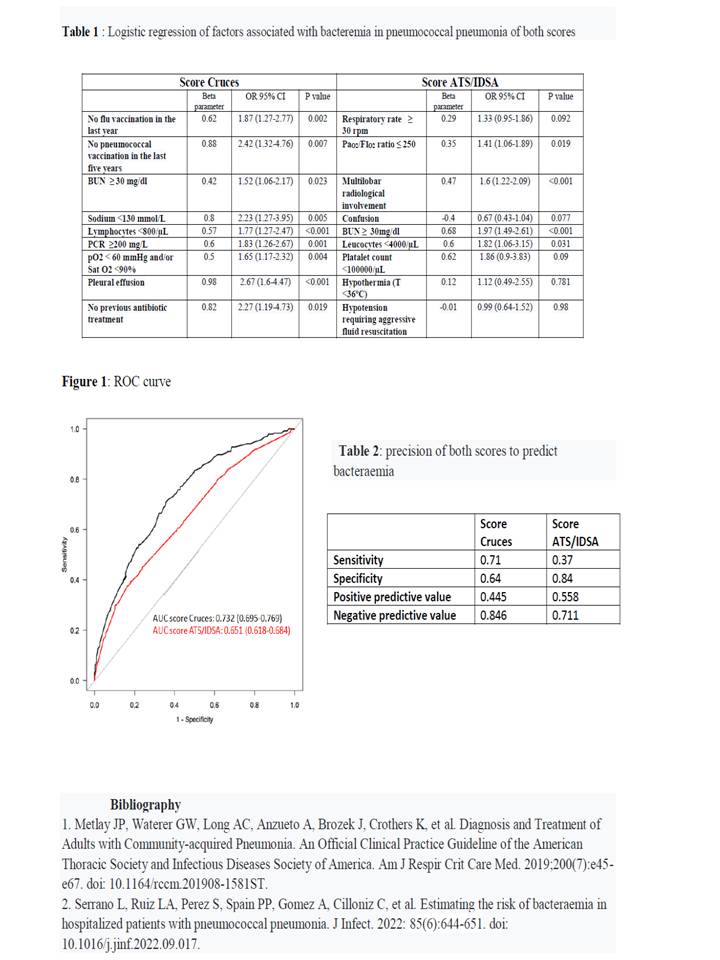Abstract
Introduction: The presence of bacteremia in patients with pneumococcal community-acquired pneumonia (P-CAP) is associated with worse prognosis, and its early identification could improve their clinical course. Objective:compare the ability to predict bacteraemia of 2 scores applicable in the emergency department in P-CAP diagnosed by positive urinary antigen (UAT).
Methods: Prospective observational study of immunocompetent adult patients admitted for P-CAP (diagnosed by positive UAT performed in the emergency department) in the Pulmonology Service of two hospitals from 2000-2020. All patients had blood cultures taken on admission. The ability to predict bacteraemia of 2 socres applied at the emergency department has been evaluated: (1) the score formed by the ATS/IDSA minor criteria for severe pneumonia and (2) the score recently published and externally validated by our group.
Results:1195 patients, of which 427 (35.7%) had bacteraemia. Table1:logistic regression model to predict bacteremia for both scores. Figure1 AUC of both models. Table 2: precision of both scores to predict bacteraemia.
Conclusions:1. Despite both scores have the same number of items and are applicable at hospital admission, the score designed by our group has a better prediction capacity for bacteraemia in P-CAP.2. The application of our score can help us to early detect patients with bacteremia and give them greater care and close monitoring.
